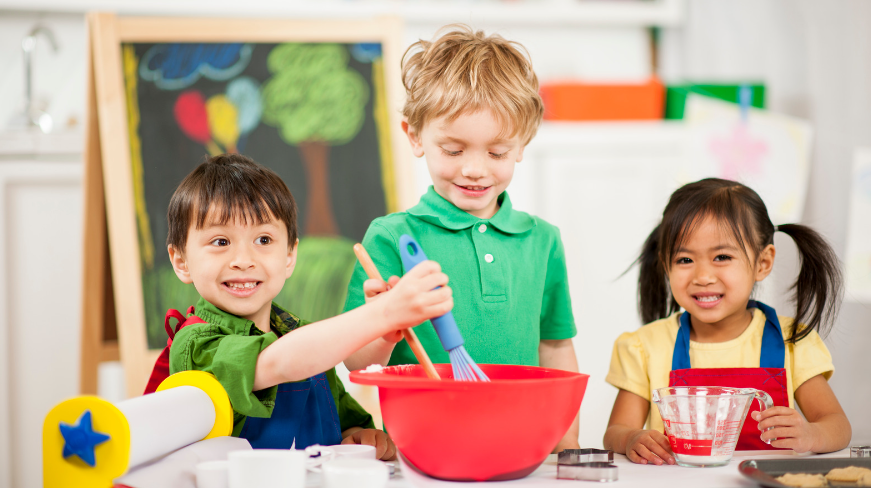Social skills for preschoolers act as their first toolkit for navigating interactions, from sharing toys to expressing feelings. It’s the baseline that allows them to engage, play, and communicate effectively with peers and adults alike.
Emphasizing social skills for preschoolers is crucial as it lays the foundational stones for future relationships, academic success, and emotional well-being. It’s about more than just getting along; it’s preparing them for a lifetime of meaningful interactions and achievements.
The Importance of Social Skills in Preschool Years
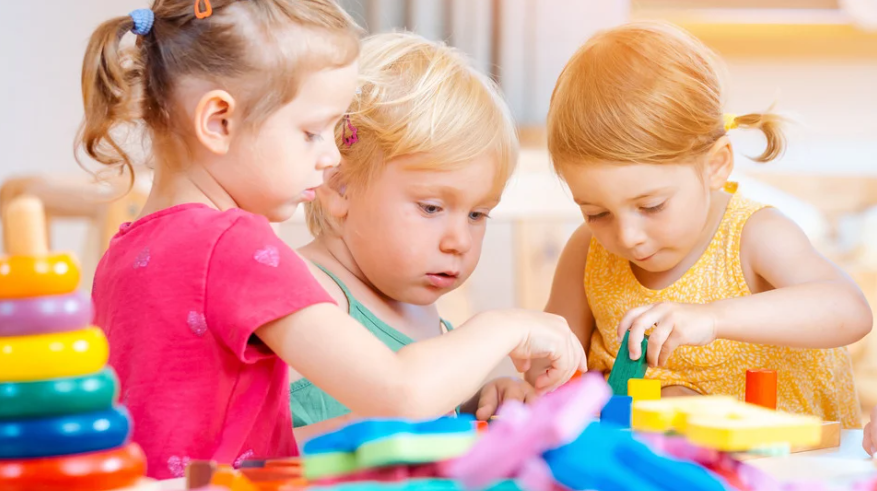
Social skills are the abilities used to communicate, interact, and form connections with others. They encompass verbal and non-verbal communication, empathy, listening, and cooperation.
Social skills lay a foundation for a child’s future, influencing their ability to engage in meaningful relationships, collaborate with peers, and navigate social settings. Early mastery of these skills fosters self-esteem, confidence, and adaptability, equipping children with the tools necessary for academic achievements and career advancement.
The development of social skills in preschool years is intimately linked with emotional regulation, academic performance, and personal development. Children who excel in these skills tend to exhibit better emotional understanding and control, are more successful in school settings due to their ability to cooperate and solve problems with peers, and demonstrate resilience and adaptability in personal challenges. This holistic growth underscores the integral role of social skills in shaping well-rounded individuals.
Challenges in Developing Social Skills for Preschoolers
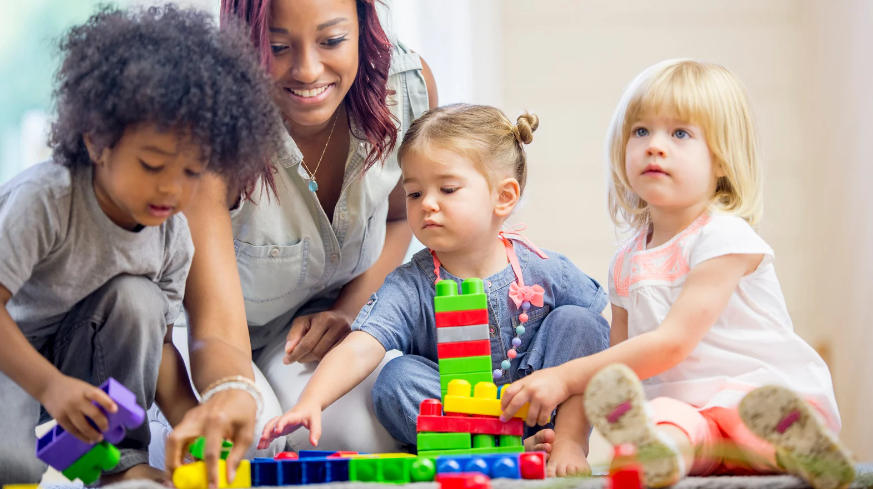
Navigating the social world can be complex for preschoolers. As they try to cultivate social capabilities, they often encounter challenges influenced by inherent dispositions, their pace of development, and the environments in which they are raised.
- Individual Temperaments: Children’s inherent temperaments, such as shyness or impulsiveness, can impact their ease of social interaction and willingness to participate in group activities.
- Developmental Readiness: Social skill development is closely tied to a child’s cognitive and emotional stage. Some may not be developmentally ready to grasp the nuances of social cues and cooperative play.
- Environmental Factors: The quality and consistency of interactions at home, in daycare, or school, as well as exposure to different social settings, shape a child’s social learning experiences.
- Parental Influence: Parents’ social skills and methods of guiding and correcting behavior can greatly affect a child’s social development.
- Cultural Variations: Differences in cultural backgrounds can lead to misunderstandings or challenges in social integration as children navigate multiple social norms.
How Daycares Can Help Nurture Social Skills
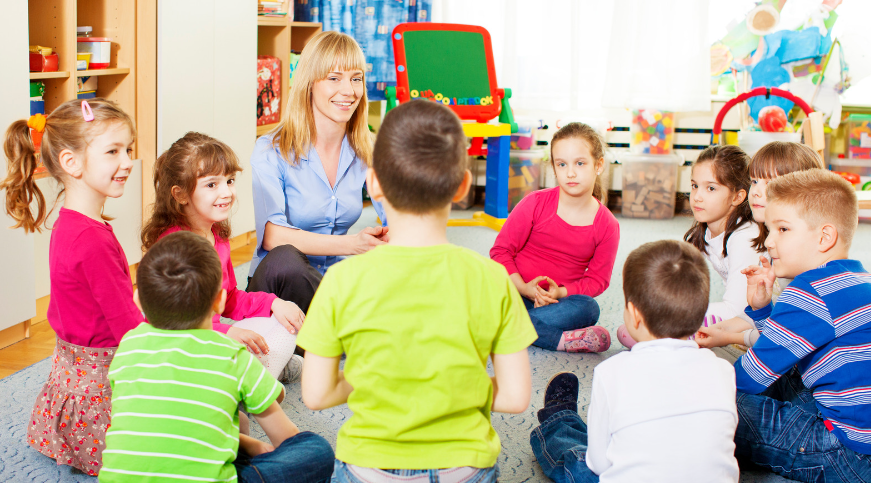
Daycares like Kemit Academy play a pivotal role in the social development of children, providing a structured environment where they can learn and practice essential social skills. Daycares can significantly contribute to a child’s ability to communicate, cooperate, and engage with peers effectively through a blend of activities and the modeling of positive interactions.
1. Structured and Unstructured Play
Both types of play are crucial for social development. Structured play, guided by adults, teaches children to follow rules and cooperate. Unstructured play, on the other hand, allows them to explore interpersonal dynamics in their way, learning negotiation and empathy through direct interaction.
2. Role Modeling
Daycare staff can foster social skills by exemplifying respectful and positive interactions. Children learn by imitation, so when caregivers demonstrate good manners, conflict resolution, and cooperative behaviors, children are likely to mimic these in their interactions.
3. Social Skills Curriculum
Implementing age-appropriate activities and lessons can help children learn to identify emotions, practice sharing, and enhance communication skills. These structured learning moments are essential for reinforcing social concepts.
4. Circle Time Discussions
Regularly scheduled times for sharing and listening helps children practice turn-taking and active listening, fostering respect for the thoughts and feelings of others.
5. Cooperative Games
Games that require teamwork and cooperation teach children the value of working together, sharing success, and contributing to a common goal.
Teaching Social Skills to Preschoolers: A Guide for Parents
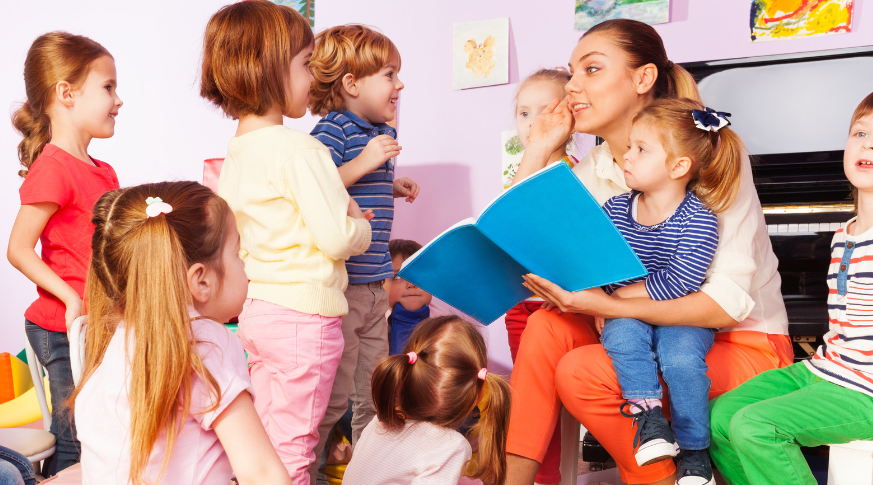
Guiding parents in nurturing their preschoolers’ social development, this section provides essential strategies for teaching social skills
1. Modeling Behavior
Ever noticed how kids mimic everything? That’s why it’s important for us adults to show top-notch social skills. Being polite, patient, and kind can turn you into their role model. Think of yourself as a walking, talking lesson in friendship and kindness every day!
Examples of behaviors to model:
- Using polite words like “please,” “thank you,” and “excuse me.”
- Showing how to listen actively by nodding and responding.
- Demonstrating how to resolve conflicts calmly and fairly.
- Expressing emotions in healthy ways, such as saying, “I feel sad when…”
- Displaying kindness to others through gestures like sharing and helping.
2. Storytelling and Role-playing
Stories and role-play aren’t just for entertainment; they’re teaching tools. Through them, kids can safely explore social challenges and discover positive ways to respond—building empathy and problem-solving skills as they act it out.
Guiding little ones to navigate and recognize the emotional world of others starts with a few thoughtful steps:
- Use picture books to discuss characters’ emotions and ask children how they would feel in the same situation.
- Encourage kids to mirror facial expressions and body language to better understand different feelings.
- Lead by example; show empathy in your interactions and encourage children to do the same.
- Discuss ‘what if’ scenarios to help children predict how their actions could affect others.
- Praise empathetic behavior to reinforce understanding and consideration of others’ feelings.
3. Positive Reinforcement
Positive reinforcement works magic. Praise and little rewards not only encourage a preschooler to engage more during social interactions but also help cement those desirable behaviors like sharing and listening.
Providing specific feedback helps children understand what they are doing right. Telling a child, “Great job asking Jenny to play!” is more effective than just “Good job!” because it makes the praise concrete and directly linked to social skills.
4. Teaching Emotion Recognition
Let’s dive into fun ways to help our preschoolers recognize and name emotions, laying the foundation for empathy and better social skills:
Activities for recognizing and naming emotions:
- Use emotion flashcards with diverse facial expressions for children to name the emotions they see.
- Read books focused on feelings, pausing to discuss characters’ emotions and their causes.
- Encourage children to express their current feelings with a “How I Feel” chart or board.
- Play emotion charades, where children act out different feelings and others guess what they are.
- Facilitate storytelling with puppets or dolls that exhibit various emotions, discussing what emotions are shown and why.
5. Encouraging Communication
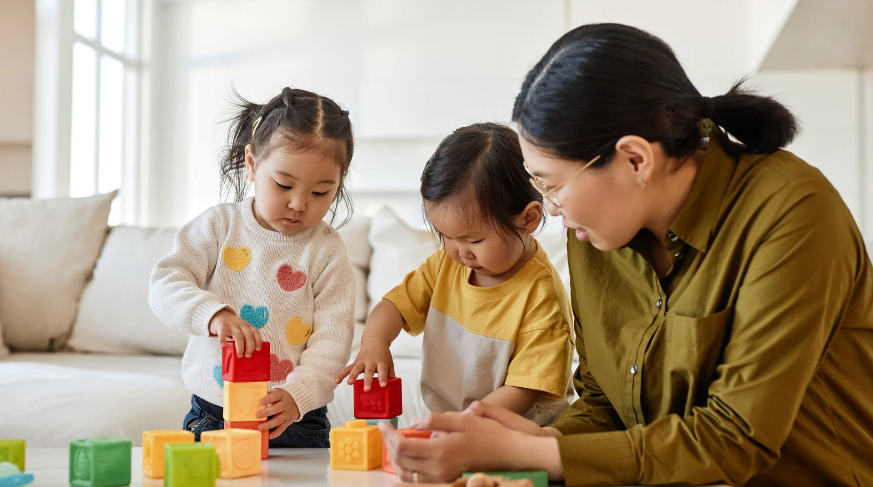
In preschoolers, enhancing verbal exchanges and active listening is crucial for their social development. Here are some key techniques to encourage these essential skills.
- Create a supportive environment that invites children to talk.
- Implement daily ‘circle time’ for kids to share thoughts.
- Demonstrate active listening by engaging fully during conversations.
- Use interactive games that promote conversation turns, like ‘telephone.’
- Utilize puppets for role-playing to teach dialogue skills.
- Celebrate good communication practices visibly and verbally.
Open-ended questions help preschoolers express their thoughts and engage more deeply. Discuss their experiences or feelings with questions that evoke more than a ‘yes’ or ‘no’ answer, enhancing critical thinking and communication.
6. Conflict Resolution Skills
Encourage kids to use words to express how they feel and what they wish would happen. Teach them to listen to the other side and to think about how their actions affect others. This fosters empathy and understanding.
Show them how to negotiate by taking turns, sharing, and finding a middle ground where everyone is a bit happy. Emphasize the power of an apology and how it can mend friendships and solve conflicts, making it a teachable moment about humility and forgiveness.
7. Setting Expectations and Rules
Clear, consistent social interaction rules give preschoolers a sense of security and understanding of their social boundaries. Engaging kids in rule creation fosters responsibility and a sense of belonging.
Final Thoughts
The development of social skills during early childhood cannot be overstated in its importance. It lays the groundwork for children to build strong relationships, communicate effectively, and navigate the social complexities of life. Encouraging cooperation between daycares and parents is crucial in providing consistent support and reinforcement of these vital life skills across all environments.
Kemit Academy is at the forefront of nurturing social skills in preschoolers in Chicago. Understanding the profound impact these skills have on a child’s overall development is at the core of our curriculum. We trust this article sheds light on their importance and practical ways to foster them. To explore how we can partner in your child’s social skill development, kindly contact us at 773-966-5039 for more details. We invite you to request a tour or schedule a free screening to enrich your preschooler’s social learning journey.

